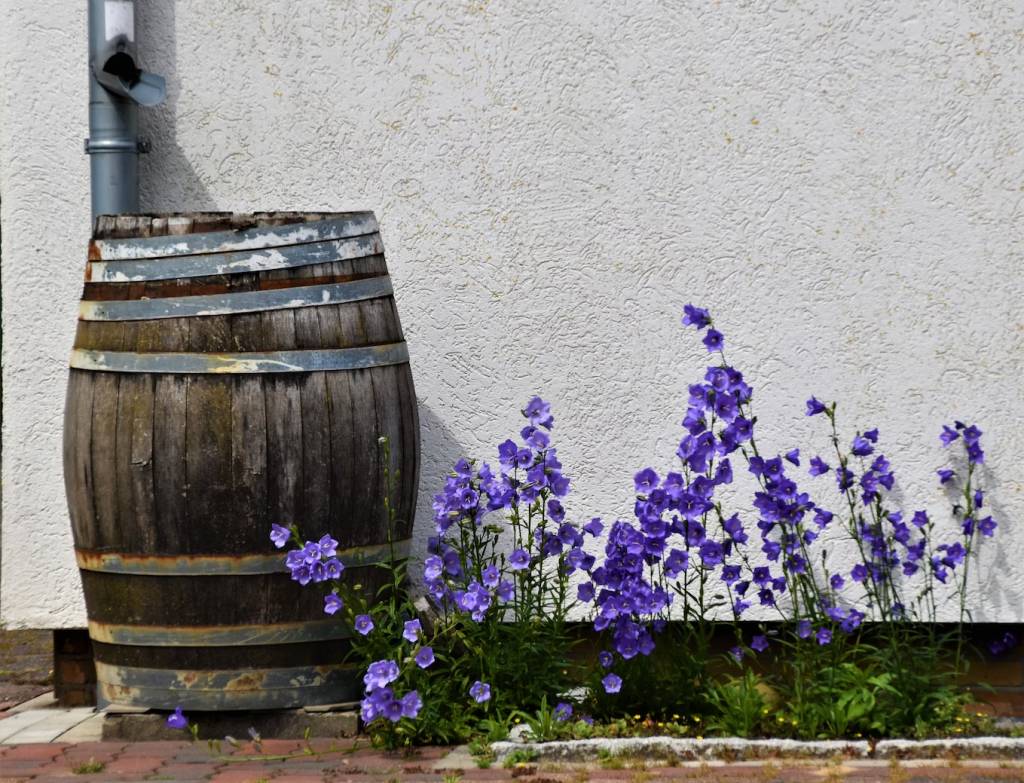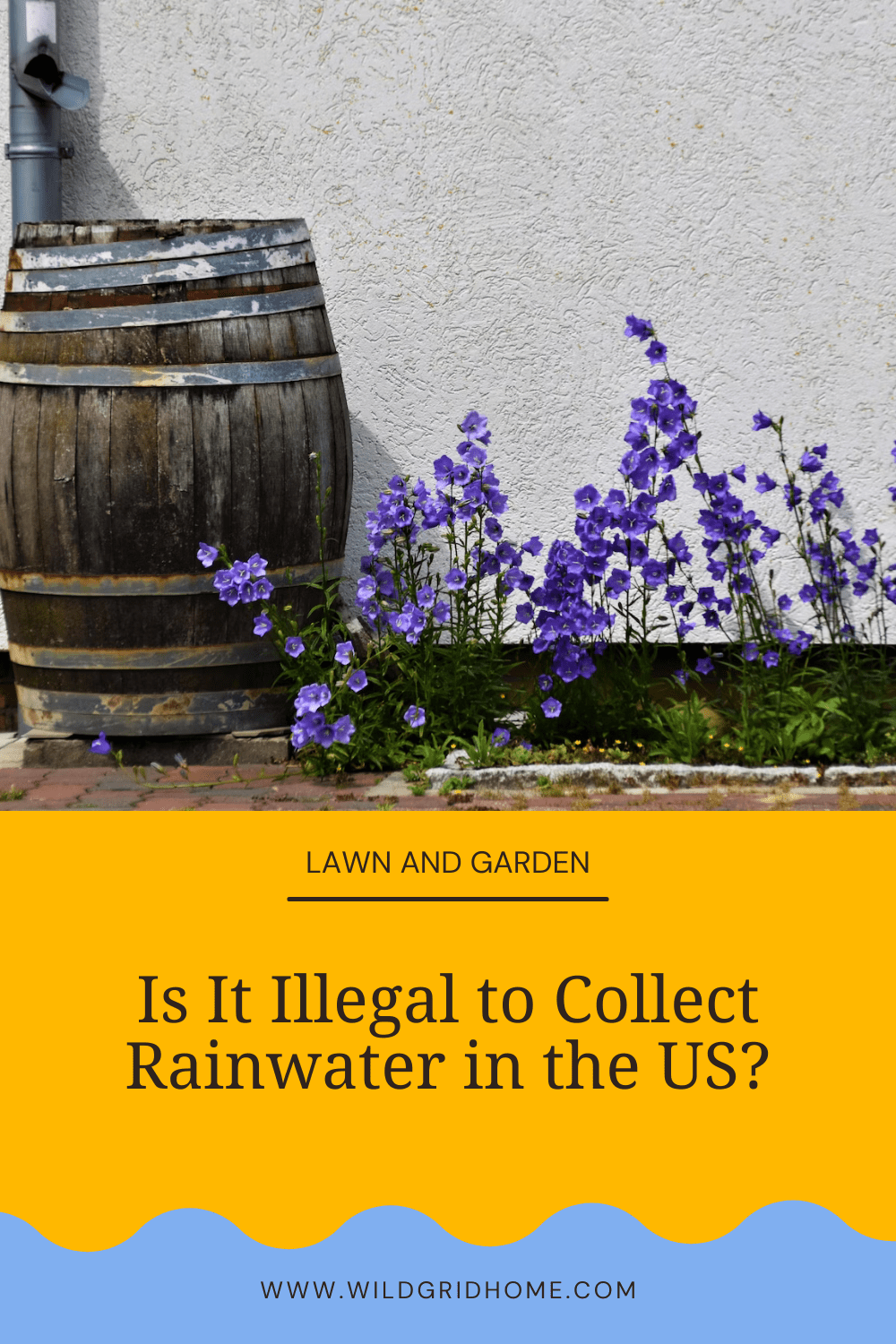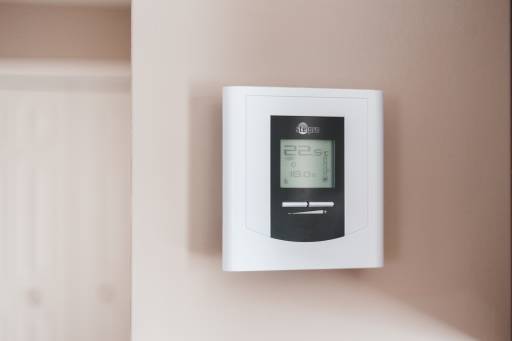Is it Illegal to Collect Rainwater in the US?

There’s a common misconception that collecting rainwater in the United States is illegal… but it’s actually not. Don’t worry, I also thought it was illegal until I embarked on this rainwater collection journey! 💧
It turns out that federally, there are no laws or restrictions on rainwater harvesting. However, each state has their own rules and restrictions.
These state-level rules and restrictions vary significantly, with some states actively promoting rainwater collection, while others have limitations on the quantity of rainwater that can be collected and the methods employed for its collection.
Well, now that we know we can collect rainwater, aren’t you a little curious as to why there are restrictions?
@wildgridhome for the longest time, some of us thought collecting rainwater was illegal but after a little research, we found out that it’s not! who here has collected their own rainwater? got any tips for us? #rainwatercollecting #rainwaterharvesting #sustainability #ecotok #environmentalism #climate ♬ A Day in My Life - Soft boy
Why do some states restrict rainwater harvesting?
You may be thinking, “water comes from the sky, why can’t I just collect it?”
This is a good question and it’s all comes down to protecting the rights of individuals to have access to water sources AND protecting these water sources from being unfairly used or polluted.
Sooo, there are water laws, the hydrologic cycle, and your health and safety that all needs to be considered.

Water laws and rights
Water is more abundant in eastern states, but western states are more prone to droughts, which is why the rules in each state are different.
These restrictions are based on laws known as prior appropriation. Restrictions on waters can date back to the Old West when settlers were migrating across the states to claim “new” land. These water rights were based on a first come, first serve basis — So, as long as you found it first and you’re using it, it’s yours! 🤠
Most states follow a law doctrine know as “reasonable use.” This doctrine states that anyone who has a right to the water can reasonably use it for their own benefit as long as it doesn’t restrict the rights of other to use it as well… which sounds pretty vague… and a little outdated.
Although outdated, these water laws are still being followed today with some states working to amend them!
Hydrologic cycle
Like I mentioned before, water availability varies among the states.
If you live in a state with low levels of annual precipitation, your local government most likely has restriction on rainwater harvesting. This is because too much rainwater harvesting can disrupt the cycle of rainfall stored in the ground. Stored groundwater is necessary for the local environment but also important for the public water supply.
Health and safety
Not all water is safe to drink, even if it comes from the sky. Some states don’t allow rainwater to be used as drinking water, but the states that do, highly encourage the proper filtration of water rainwater to make sure it’s safe to consume.
There are also concerns about pesky mosquitoes since they love standing water. If containers aren’t properly covered even the smallest amounts of water can become a mosquito breeding site. 🦟 To avoid this make sure to cover water inlets with a screen and empty containers every 10 days.
@sabrina.sustainable.life Replying to @LCMM313 fighting anti rain water collection misinfo until i die ☠️ #ecofriendlyyard #ecofriendlyliving #rainwater #rainwaterharvesting #rainwatercollecting #ecotok #savewater #sustainablebackyard
♬ Goodness Gracious - Yung Gravy & bbno$ & BABY GRAVY
What restrictions on rainwater collection exist in my state?
Now let’s get this straight… there are 50 states and you and me both know that reading through the rules and restriction for each state is going to be too tedious. Soooo… I’ve done us all a favor and found this super fun and cool interactive map that shows the rainwater collection laws for each state! 😎
But, if you’re looking for a quick look into the different types of restrictions:
Colorado
Colorado allows the collection of rainwater from residential properties with a few restrictions on how much and how you collect.
Some of the restrictions state that:
- Rainwater must be collected in no more than two rain barrels and must have a sealable lid (to prevent mosquitoes).
- The combined storage capacity of the rain barrel must be 110 gallons or less.
- You can only collect rain from a downspout of a rooftop and only use this water for outdoor purposes, like watering your lawn or garden, or washing you car. 🪴
So as long as you follow these rules, you’re more than welcome to collect rainwater!
Oregon
Not only does Oregon allow rainwater harvesting, they actually encourage it by providing incentives for homeowners AND renters. (P.S. for our Texas readers, rainwater harvesting is also encouraged by the state!)
In Oregon, you could save up to $130 a year by directing the rain from your roof safely into the ground of your property instead of it going into the city’s sewer and stormwater pipes.
This initiative is known as the “Clean River Rewards” and was implemented by the local government to help keep rivers clean. 🦦 Rain that runs off roofs and/or hard surfaces tends to collect pollution and debris, which then ends up in rivers and streams. This is a big no-no, so by collecting rain in Oregon, you can save money and help out your local environment.
New York
This might come as a surprise, but there are no restrictions at all for rainwater collection in New York. In fact, you’ll find government websites encouraging residents to capture water in a rain barrel with tips on how to use the collected water to use on your garden and house plants. 🗽
On average, New York gets about 30 to 50 inches in precipitation, so with all this rainfall it’s not surprising that it’s encouraged. Collecting rainfall can help decrease soil erosion, reduce runoff of debris and pollution, and help reduce charges on utility bills.
California
In California, if you take water from a lake, river, stream, creek, or from underground supplies for beneficial use you may need a water permit. Remember those outdated water laws I mentioned a few moments ago? Well those laws could actually give you rights to water without a permit.
It’s all very confusing…but luckily if you want to harvest water from your rooftop it doesn’t require a permit. So, collect away! 💧

Why collect rainwater?
Whether or not your state allows you to collect rainwater, here are the benefits of rainwater harvesting:
💧 It can help you save money on water bills. Maybe you have a farm, a small garden, or a balcony oasis, whatever it is, collecting rainwater to tend to your plants can save you some extra bucks on your utility bills.
🩵 You can use it for other stuff. You can use it for drinking water (if your state allows it) or you can use it to wash your car, water your garden, provide drinking water for animals, fill your hot tub, irrigation, the list goes on…
🌀 It helps decrease soil erosion, stormwater runoff, and water pollution. In areas with heavy rainfall and risk of flash flooding, collecting rainwater can help soil erosion which can significantly impact communities, especially ones that rely heavily on agriculture. In addition, you can prevent debris and pollution from entering local rivers and streams.
🌧️ Improves the quality and quantity of groundwater. Rain can be collected and channeled directly back into deep wells to recharge groundwater. This prevents dry wells or sinking lands, while providing wetland habitat for birds, reducing flood risk, and storing water for droughts.
I want to start collecting rainwater, where do I start?
First, check your local rules and regulations to find out if there are no restrictions, few restrictions, or if it’s encouraged!
If you’re allowed to then you’ll need some standard components like a catchment area, roof, gutters or downspouts to direct rainwater to storage tanks or barrels. Then if you’re feeling fancy you can install a distribution system with pumps and filters.
When deciding you will need to consider size, material, and level of filtration that is appropriate for your needs as well as what your state allows!
Go on, time to start collecting rainwater!



